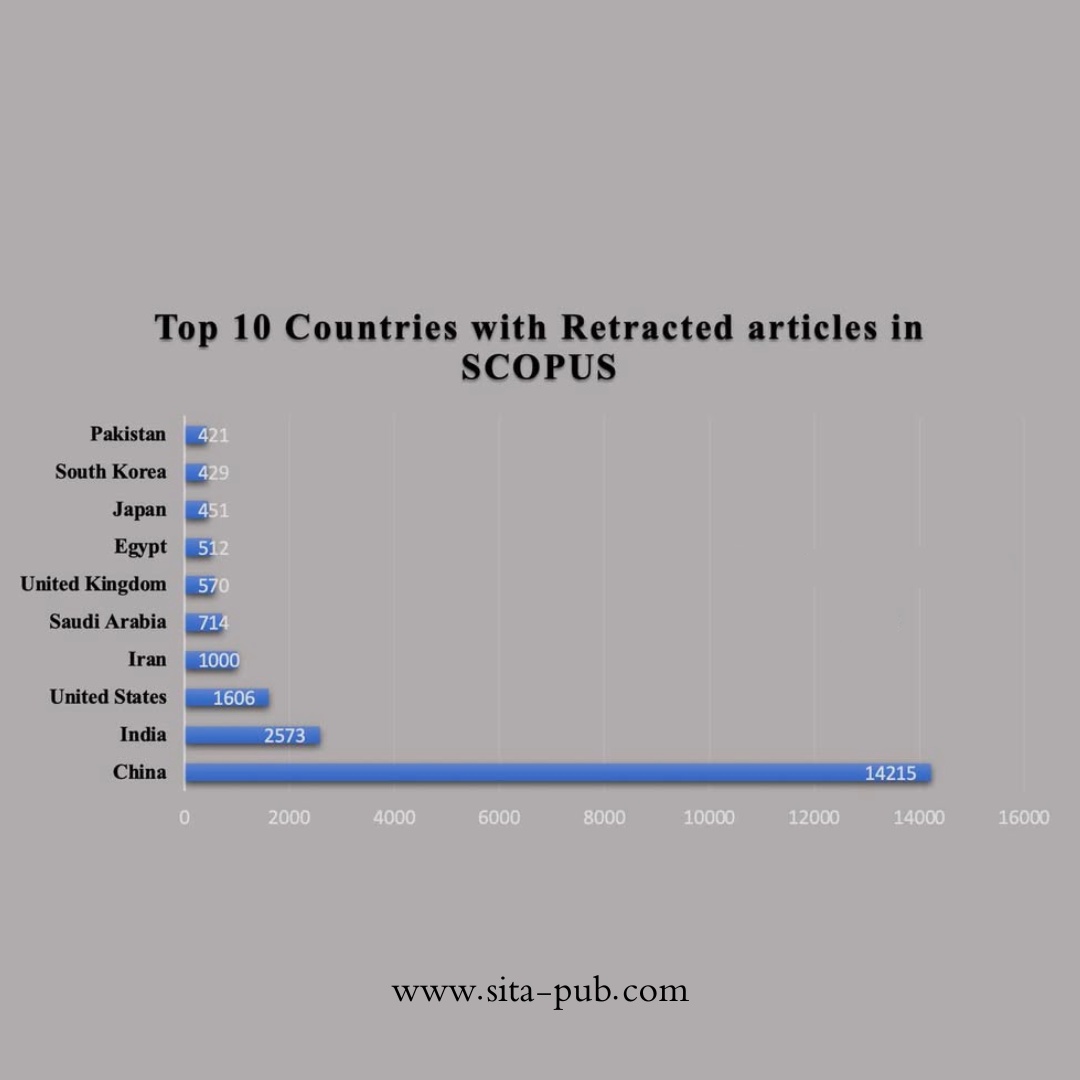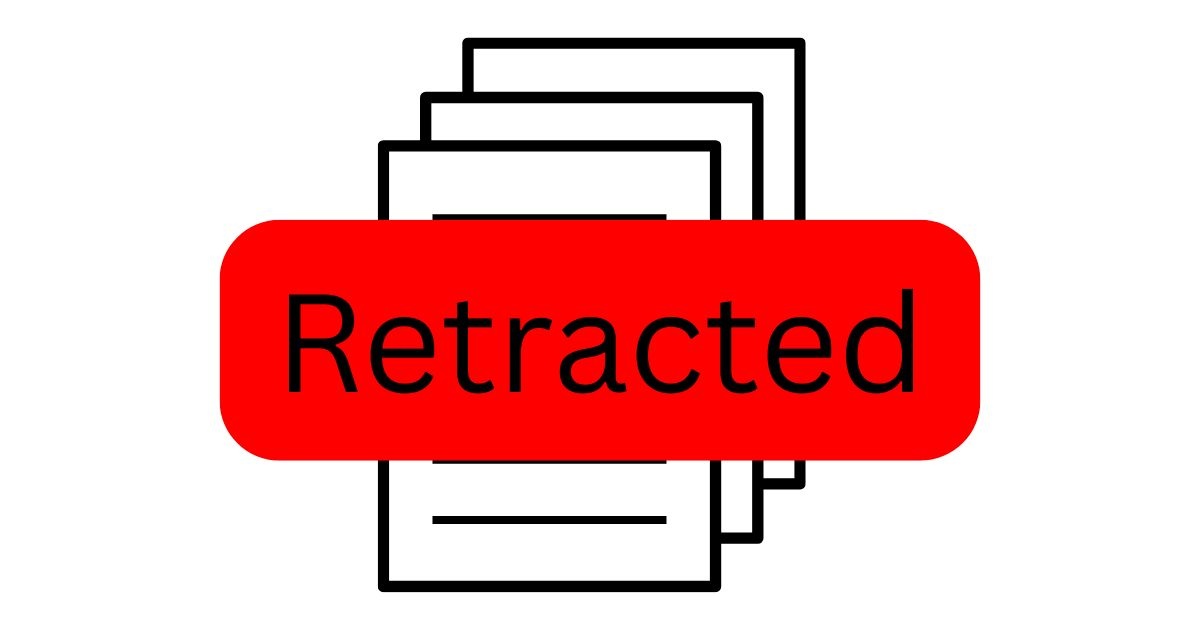Top 10 Countries Within Retracted Articles in Scopus


Publishing in a reputable journal indexed in Scopus is a significant milestone for any researcher. It signals that your work has undergone peer review and is recognized internationally. However, publication is not always the end of the story. In some cases, published articles are later retracted due to issues like plagiarism, data fabrication, or ethical violations. Retraction is a serious matter that can damage the reputation of individual researchers, institutions, and even countries.
In this article, we will explain what article retraction means, why it happens, highlight the top 10 countries with the most retracted articles in Scopus, and offer practical tips to help you avoid retraction in your own work.
Article retraction is the formal process of removing a published research paper from the academic record. This action is usually taken by the journal's editorial board, sometimes in collaboration with the authors or their affiliated institutions. When an article is retracted, it usually remains visible online but is clearly marked as “retracted.” A retraction notice is also published, explaining the reason for the decision.
Retraction indicates that the article is no longer considered reliable or valid due to serious issues such as errors, misconduct, or violations of publication ethics. Retracted articles are not simply corrected—they are withdrawn entirely to protect the integrity of the scientific record.

Retractions can occur for many different reasons, ranging from honest mistakes to deliberate fraud. Understanding these reasons is essential to preventing them in your own research.
Plagiarism: Using someone else’s words, ideas, or data without proper citation.
Data Fabrication or Falsification: Creating false data or manipulating results to support a hypothesis.
Ethical Violations: Conducting research without proper approvals, consent, or following ethical guidelines.
Duplicate Publication: Publishing the same content in more than one journal without transparency.
Authorship Disputes: Including authors who didn’t contribute, or excluding those who did.
Honest Error: Mistakes discovered after publication that significantly impact the conclusions of the paper.
It is important to note that not all retractions are the result of unethical behavior. Sometimes researchers or editors uncover serious but unintentional errors. Regardless of intent, retractions can negatively impact a researcher's credibility and future opportunities.
According to available data, the countries with the highest number of retracted articles in Scopus are:
Country | Number of Retracted Articles |
China | 14,215 |
India | 2,573 |
United States | 1,606 |
Iran | 1,000 |
Saudi Arabia | 714 |
United Kingdom | 570 |
Egypt | 512 |
Japan | 451 |
South Korea | 429 |
Pakistan | 421 |
Countries like China and India have rapidly increased their research output in recent years. With such a high volume of publications, it is not surprising that they also experience a higher number of retractions. These figures do not necessarily reflect poor academic standards but may instead point to increased scrutiny and stronger monitoring systems.
In some cases, national reforms and awareness campaigns have led to more active efforts to correct the academic record, which includes retracting flawed or unethical papers.
Most causes of retraction can be prevented through proper research practices and attention to detail. Here are some practical tips to help you protect your work:
Always ensure your research complies with ethical standards set by your institution and international guidelines. Obtain proper approvals for studies involving human or animal subjects and ensure informed consent when necessary.
Plagiarism is one of the most common reasons for article retraction. Always cite your sources accurately and use quotation marks for direct quotes. Use plagiarism detection tools before submission to ensure originality.
Be honest and transparent with your data. Never fabricate, alter, or omit findings to fit your hypothesis. Maintain clear records and documentation so your data can be verified if needed.
Only list co-authors who have made a meaningful contribution to the research. Make sure all authors approve the final version of the manuscript before submission.
Submit your work to reputable journals that are indexed in databases like Scopus and that follow clear editorial and peer-review policies. Be cautious of predatory journals that may lack rigorous standards.
Related Article
Before submission, thoroughly proofread your manuscript and double-check your references, data, and formatting. Consider hiring a professional editor or using a journal formatting service to ensure compliance with submission guidelines.
Keep up with the latest practices in academic integrity. Read guidelines from organizations like COPE (Committee on Publication Ethics) and participate in workshops or webinars on ethical publishing.
Publishing in Scopus-indexed journals is a goal for many researchers, but it comes with the responsibility to uphold high academic standards. Retractions not only harm individual careers but also affect the reputation of institutions and countries on a global scale.
By following ethical guidelines, being transparent in your research, and taking the time to ensure accuracy, you can significantly reduce the risk of retraction. Working with experienced academic consultants or editors can also help you meet international publishing standards with confidence.
Submitting a research paper to a Scopus-indexed journal requires accuracy, originality, and full compliance with ethical standards. If you want to avoid the risk of retraction, working with a professional academic support center can make the process easier and more reliable.
At SITA Academy, we offer services to help researchers prepare their manuscripts according to international publishing standards. Our team uses trusted tools such as iThenticate to check for plagiarism and provides professional paraphrasing to ensure originality.
We also:
Review your references, formatting, and structure to match the target journal’s guidelines.
Guide you on the ethical approvals and documents required for submission.
Help you improve your paper before submission to reduce the risk of rejection or retraction.
If you are preparing a research article and want expert support, feel free to contact our team. We are here to help you submit your work with confidence and meet all academic requirements.
Visit our website or contact us via email or WhatsApp—our verified channels are listed in our contact us landing page.